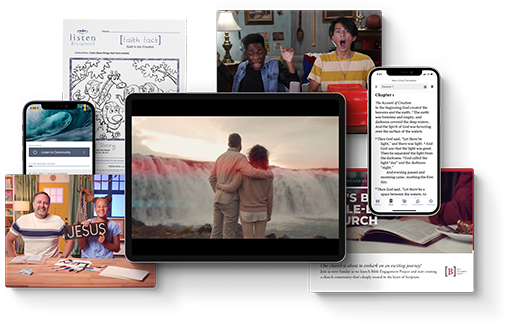When God Opened My Eyes
By David Docusen | Posted In Ministry Tools
We all look alike, I thought to myself.
My heart raced as I looked across the room at the people who had gathered for the worship service at Center City Church (Assemblies of God) in Charlotte, North Carolina.
Leaning against a simple metal podium in an elementary school auditorium, I was about to preach as I had done each Sunday for the previous five years. Standing in front of my congregation, scanning the faces of people who had become family to me, I was not prepared for my heart to be broken. Tears filled my eyes as I struggled for words.
I am not sure why it happened on this day, but it was as if God opened my eyes and showed me that most of the people in this church looked just like me — young and white. And the plaid. There was so much plaid.
After the service, I wrote a phrase in my journal: “Like people invite like people.”
I cried and confessed to God, “Our beautiful church looks nothing like our beautiful city.”
That day, I started a journey that would deeply impact my relationship with God and others.
I knew I had much to learn and that I needed to start by looking inward. I prayed David’s prayer in Psalm 139:23-34, asking God to search my heart and expose anything that offends Him. I wanted my life and ministry to reflect God’s kingdom.
Over the course of the next five years, I became more curious about God’s heart for racial and economic injustice. I intentionally began reaching out to people who were different than me, and I listened more than I talked.
Our church launched a monthly book club that explored racial reconciliation. We relocated our facilities to a more diverse area of Charlotte, where we responded to the needs of our neighborhood and built new friendships. As we listened, learned, and loved, our congregation naturally grew more diverse.
During that same period of time, I started a doctoral program at Southeastern University in Lakeland, Florida, with a focus on racial and economic justice. My studies helped inform my preaching. I no longer saved conversations about these topics for special sermons.
As we listened, learned, and loved, our congregation naturally grew more diverse.
As the Holy Spirit illuminated God’s heart during my times of prayer and Bible study, I regularly integrated into my sermons what both the Old Testament and New Testament have to say about seeking justice and loving our neighbors.
Since the day God opened my eyes, I have not seen the Bible or my neighborhood in the same way. As I opened my heart and my world to people who are different from me, I saw glimpses of God’s beauty.
In 2018, I joined a group of leaders in our community to launch a nonprofit called Freedom Communities. This organization focuses on family-centered community transformation by ensuring each family has access to education, employment, health care, and housing.
God has miraculously opened doors for us to build three mixed-income housing communities. We’ve also developed a path toward home ownership for families.
We launched a new program called Moms Moving Forward that pairs single moms with life coaches. The life coaches assess immediate needs and help these women work toward a sustainable path to a flourishing future.
My family and I recently took a step of faith to transition the pastoral role of Center City Church to a dear friend, Jon Hernandez. The call to advocate for racial and economic justice and help others reach across dividing lines is now my primary focus.
Throughout this process, I have discovered the importance of courage and curiosity. We need courage to engage hard conversations and stay in them long enough to experience meaningful change in our hearts. We need curiosity to reframe our thinking and realize we can learn from neighbors who come from different backgrounds.
The message of neighborliness has sent us across the country preaching, teaching, and training at churches, businesses, and nonprofit organizations. I have the joy of working with churches to move from limited outreach programming to holistic community development strategies that engage the resources of congregations for the benefit of their neighbors in low-income communities.
Engaging in activities that bring us closer to our neighbors is a foretaste of heaven on earth. The picture of the community of God in the Book of Revelation includes every nation, tribe and tongue.
May God’s kingdom come on earth — in our relationships and in our churches — as it is in heaven as we experience the beauty of God across dividing lines.
This article originally appeared in the November/December 2020 edition of Influence magazine.


